Fine Furniture Created by Inmates from New Hampshire and Maine Correctional Facilities
“A New Path: Prison Furniture Making Program,” is an exhibition, presented by the New Hampshire Furniture Masters, of works by inmates participating in the Furniture Masters’ Prison Outreach Program, which currently operates in correctional facilities in New Hampshire and Maine. The show will be on view at the Furniture Masters’ Gallery, located at 49 South Main Street in Concord, NH, from March 11 through June 8, 2015.
The Prison Outreach Program was founded in 1999, following an invitation from former New Hampshire Superior Court Justice Kathleen A. McGuire to Furniture Master Terry Moore to visit the Concord correctional facility’s Hobby Craft Workshop. The program began with the instruction of Eric Grant and Tim Eldridge, two inmates who showed great promise. Today approximately 12 to 15 inmates are participating in the program at any given time, with more on a waiting list. Only those participants who have maintained an exemplary disciplinary record for one year are admitted. Participating inmates are schooled in the art of fine furniture making by a rotating faculty of Furniture Master volunteers including Terry Moore, Tom McLaughlin and many others.
“The Furniture Masters’ Prison Outreach Program provides inmates with opportunities to
spend their time in prison productively, gain skills that make them highly marketable upon release, and work closely with men who are masters of their craft and role models of family and societal values–all with an eye on ensuring that they become responsible citizens who never return to prison,” observes Judge McGuire.
“As a mentor in the Prison Program over the past 16 years, it has been very rewarding for me to see the personal growth of each inmate,” says Furniture Master Terry Moore, who has been deeply involved in the initiative since the outset.
After finding success in Concord, the program was extended to the Berlin, NH correctional facility, and in 2012, Furniture Masters Brian Reid and Howard Hatch launched a companion program for inmates at the Maine State Prison in Warren, ME. Recently, the Furniture Masters have received queries from correctional facilities in Massachusetts and Rhode Island who are also interested in launching such an initiative.
“For me, volunteering with the Prison Outreach Program is so much more than searching for a pat on the back for a job well done,” says Furniture Master and Maine program leader Brian Reid. “What we do inspires the prisoners. They are learning to be creative. They are gaining confidence in their decisions. They are looking to themselves for answers. They help each other. I see this in the prisoners every week. There are not many other programs in the prison that do this-this is what keeps me going in every week.”
“I am drawn to go into the prison because there is something wildly spiritual and adventurous about it,” notes Furniture Master and program volunteer Tom McLaughlin. “When I enter the inmate’s workshop, I am not thinking of myself as the good guy helping out a bad guy. Rather, we are two men who share a common creative passion, working together for good, without fear. It is exhilarating to think an encounter so small and simple can mean so much to a man’s experience inside a prison, and beyond.”

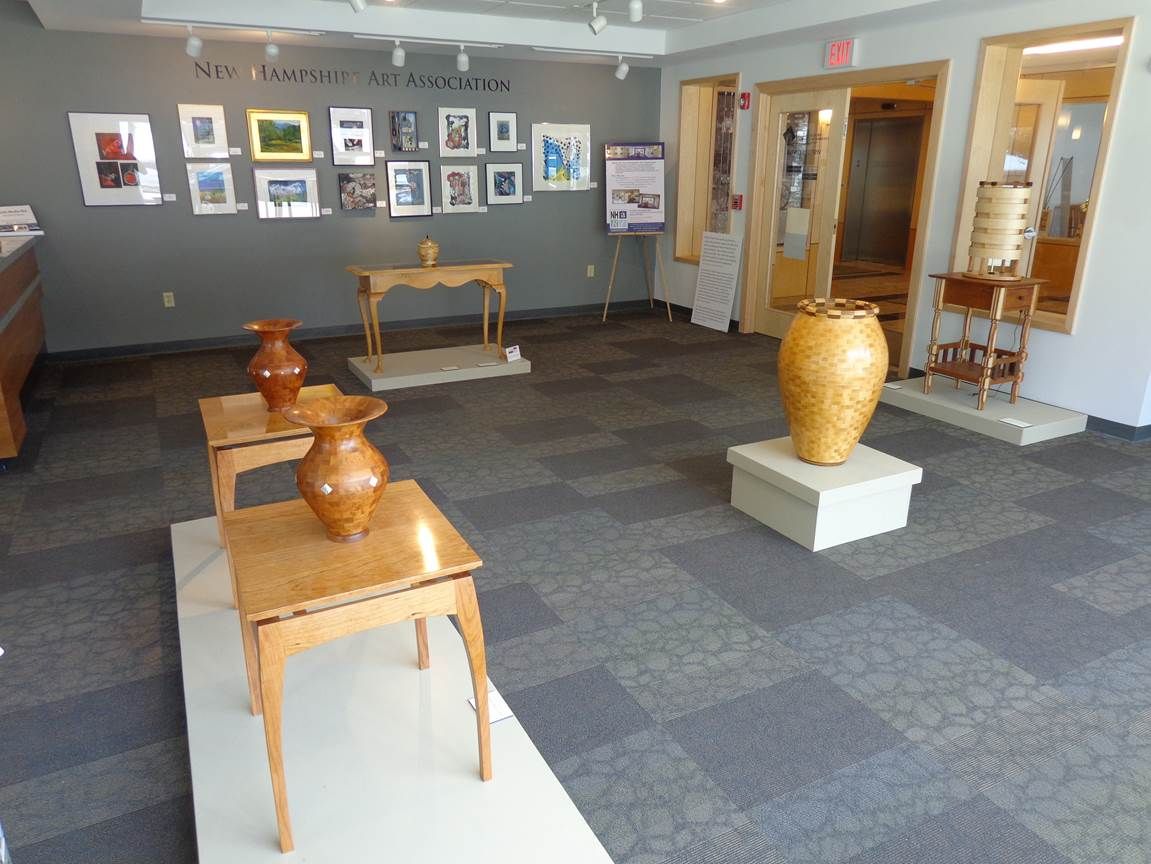
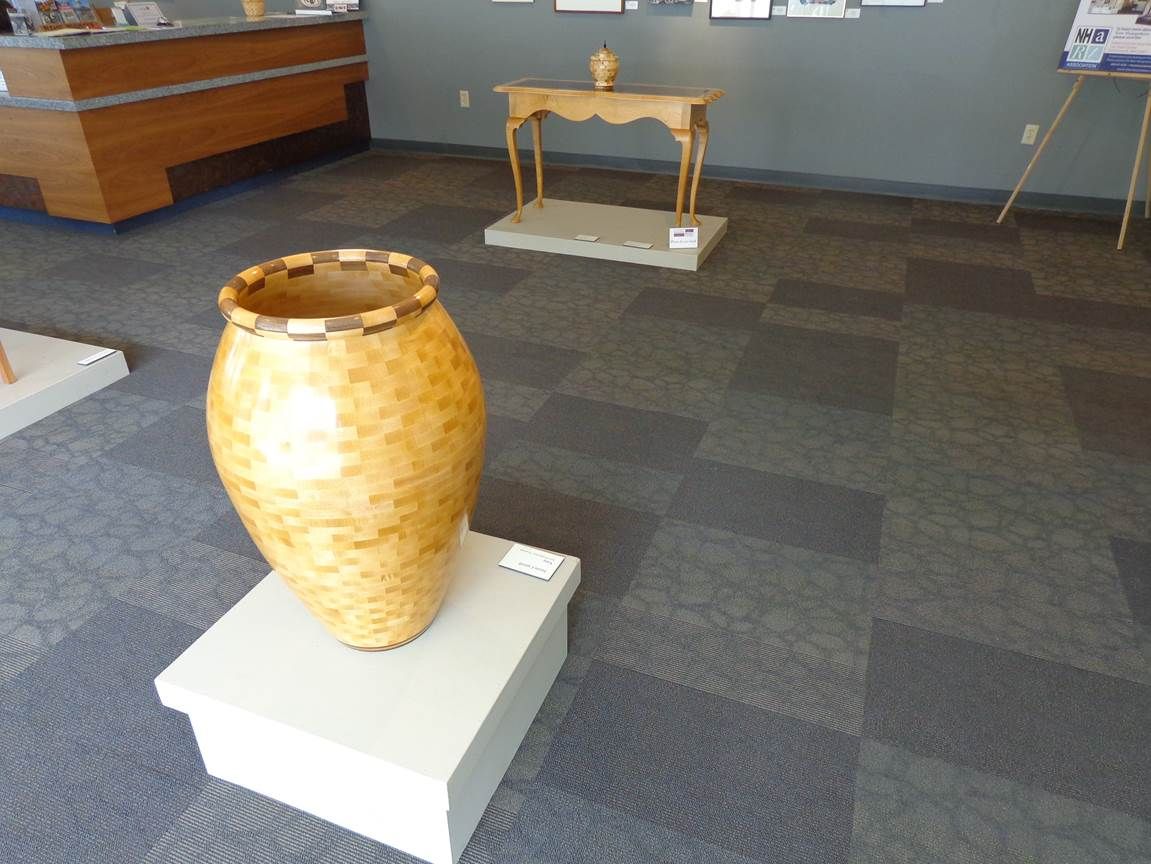
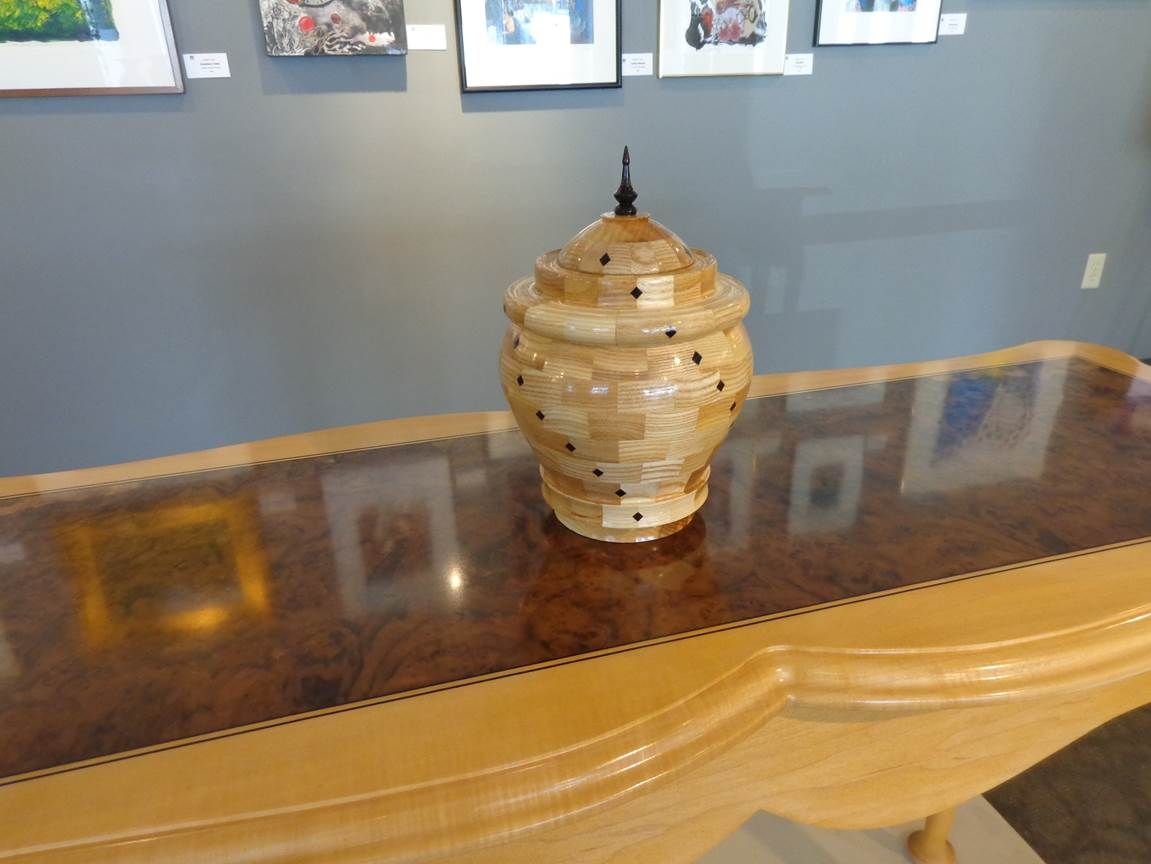
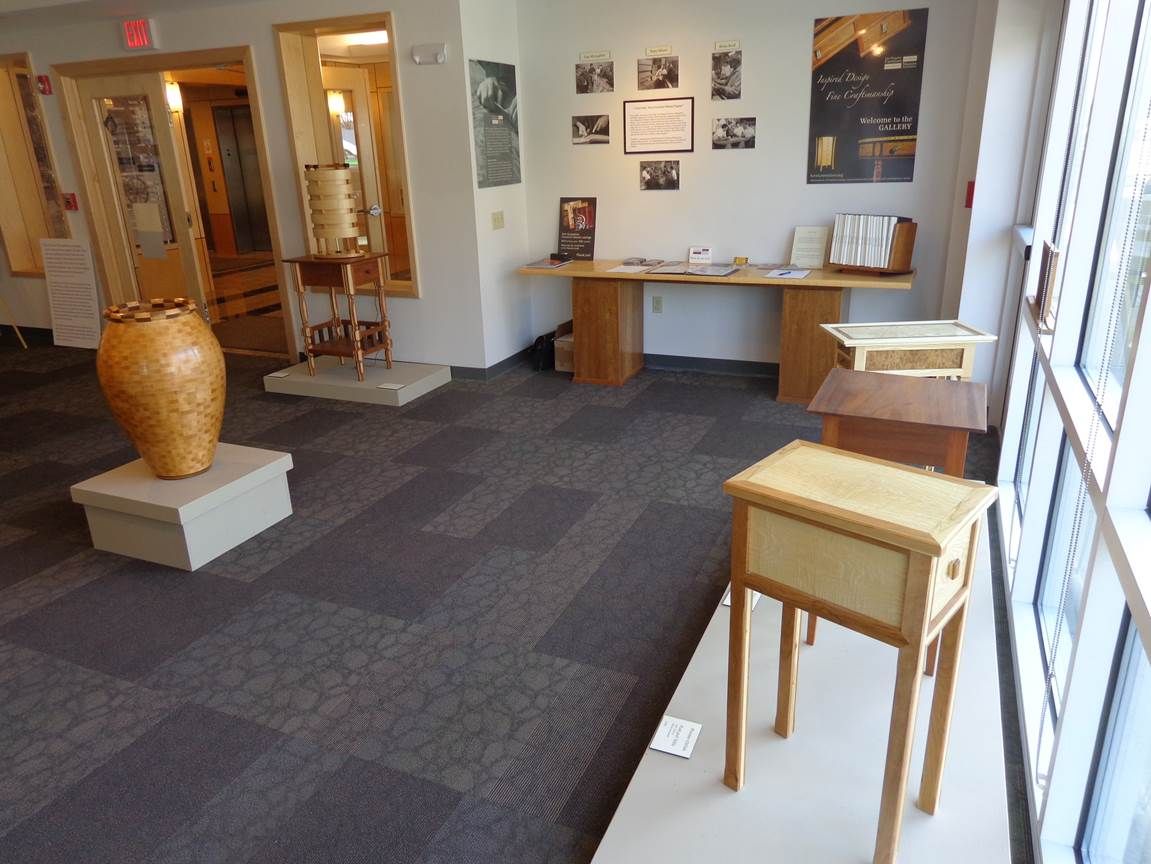
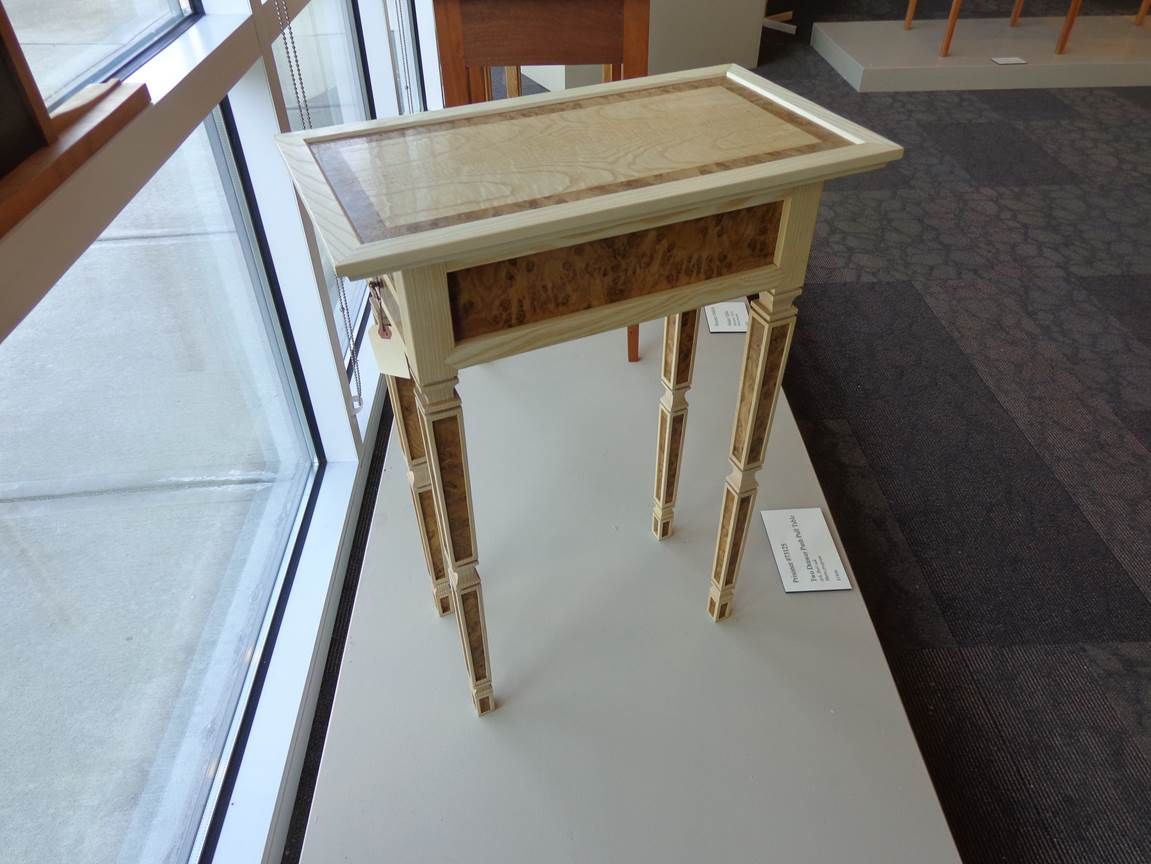
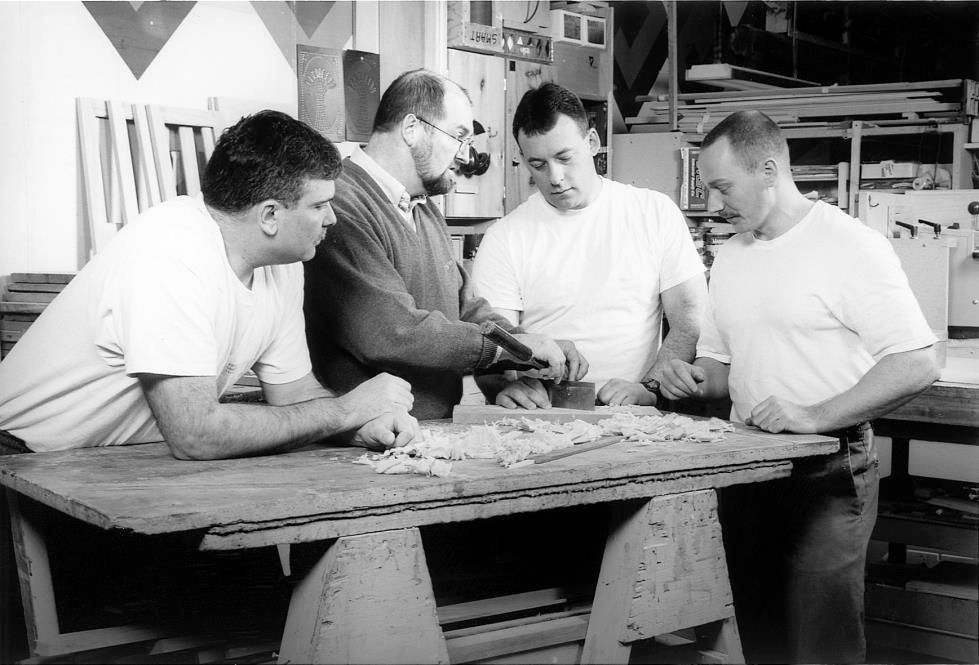
















Comments
It is a really fine thing that some folks have remembered the transforming influence of craftsmanship. Cheers to Maine and New Hampshire... may the powers of woodworking to build lives be spread to other states.
There is a long standing notion in manual arts training, that it served as a means of building character in those who have not had the advantages of moral structure put forth by religions and society.
The truly interesting thing is that craftsmanship is developmental of moral character of all within society. As we faced the banking collapse in 2008, who would not have wished that bankers and politicians would have had the kind of morality that is distributed throughout the human soul, by the trials and tribulations of learning to cut a dovetail joint.
Educational Sloyd recognized that the true worth of the objects made in wood shops was not in the objects made, but in the transformation of lives those objects represent. There are values inherent in craftsmanship that our society has chosen to over look. If we had woodworking at schools, and in the homes, and greater opportunities to do woodworking with kids, they might become craftsmen instead of inmates. And if all children had the opportunity to learn the values developed through craftsmanship, we would probably have a more just and humane society in the first place.
Log in or create an account to post a comment.
Sign up Log in